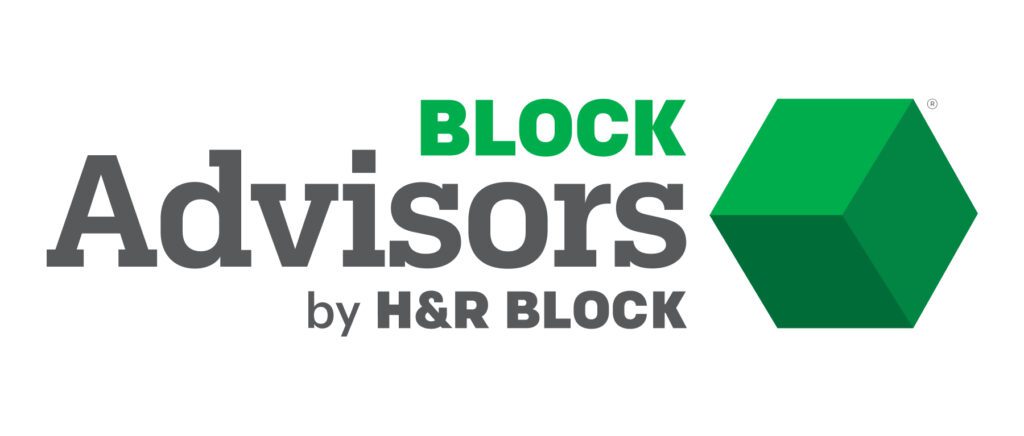An entrepreneur’s guide: personal vs. business bank accounts for your small business
8 min read
August 02, 2023 • Block Advisors
KEY TAKEAWAYS:
- Business bank accounts are geared toward business owners, while personal accounts are designed to help individuals manage their finances.
- Business accounts offer many benefits to business owners such as streamlined accounting and tax reporting, business legitimacy, and asset protection.
- Having separate bank accounts may be more efficient, especially at tax time, by making the line between personal and business activities and assets clear.
As a small business owner, getting paid is a gratifying experience. But where should that money go?
Many business owners skip the step of setting up a business checking account at a bank in the beginning. Some elect to open a personal checking account at their current bank for their business needs. Looking into business and personal accounts is an important step for your business’s success.
Bookkeeping for up to 50% less.
Save time and money with our small business bookkeeping services.
After your business starts making a profit you may ask yourself, “Can I put the money in my personal account?” Or “Do I have to open a separate business account?” Keeping your personal and business finances separate from the start is a smart idea. But though it offers many benefits, it is still a decision meriting careful consideration.
Here we’ll discuss the differences between business and personal accounts. Then we’ll cover what to think about when choosing the best option for your business.
What is the difference between business accounts & personal checking accounts?
At first glance, business accounts and personal checking accounts at a bank can look similar. Examine each in more detail and you’ll find key differences to be aware of.
As the names suggest, business accounts are specifically geared toward business owners. In contrast, personal accounts help individuals manage their finances. Some of the main differences are:
- Documentation Requirements: Business accounts require more documentation to open. You’ll need to have important business information and documents handy. These include things such as your employer identification number (EIN), business license, and documents specifying partnerships or operation agreements. To open a personal account less is required. You’ll usually only need your ID, a social security number, and an address.
- Legal Protection: A business bank account offers more personal liability protection than a personal bank account. Business accounts help you keep your business funds separate from your personal funds. If you open a personal bank account, you won’t have the same limited personal liability protection as you would have with a business account.
What do business bank accounts offer?
Whether your business operates under a DBA (“doing business as”) or as an LLC, corporation, or other structure, it’s widely recommended that you open a business account. By opening a business account, you may be able to:
- Have access to business checking capabilities
- Make payments from the account, transfer money, and use a business debit card
- Separate business savings and working capital into sub-accounts
- Access helpful features like payroll processing services and financial advising
You should note that opening this type of account might have some requirements. For example, a minimum monthly deposit amount or a balance requirement. Furthermore, depending on the financial institution and account type, you may be subject to monthly fees.
What do personal bank accounts offer?
On the other hand, personal accounts are used more frequently for personal funds. Common features and uses of these accounts include:
- Check deposit capabilities
- Paying personal expenses (bills and mortgage payments)
- Making debit card purchases
- Withdrawing money from an ATM
If your business operates as a sole proprietorship, you may be tempted to open a personal checking account. This may not be in your best interest. If you do, be meticulous in keeping track of your business and personal transactions.
Why should I consider a business account?
Small business owners often choose to open a business checking account if they plan to use other banking services financial institutions offer. Even if a separate account is not legally required for your business, it’s still wise to open one. We’ll look at the benefits of a business account in more detail next.
Business bank account benefits
Having your finances separated between a business and personal account offers many upsides. Here are some of the benefits to consider when looking to open a business bank account:
Accurate accounting
The first benefit is more accurate and streamlined accounting and bookkeeping. It’s much easier to keep track of cash flow when the funds move in and out of a dedicated account. If the accounts aren’t separated, funds can get confused more easily. This will also lessen some of the stress of bookkeeping.
Easier tax reporting
Tax reporting, such as reporting done for FICA taxes and other employer payments with IRS Form 941, also becomes simplified with a business bank account. If you plan on using small business tax deductions to offset some of your business expenses, having a separate account makes things more organized when it comes time to file.
Asset protection
When you separate your business and personal finances, your personal assets may be protected from financial liabilities – like if your business was to be sued or go bankrupt. Business bank accounts also offer merchant services. If you enroll in these services, you can offer purchase protection to your customers. Customers appreciate knowing you are able to keep their information confidential and secure.
Business legitimacy
Opening a business account may increase perceptions of your business’s legitimacy. Also, since the IRS treats business income differently than hobby income, using a combined account could lead to trouble. One factor the IRS may use to distinguish a business from a hobby is whether you keep a separate account for your business.
Branding & reputation
As a small business owner, image and reputation are crucial. Having a business account adds a sense of professionalism and credibility to your business. Clients could also be more hesitant toward your business if they pay you personally rather than the business itself. The account will also give you an established line of trust that could be of help if you need to apply for a small business loan.
Choosing the right business bank account for you

Not only are business and personal accounts different, but there can be differences between business accounts. Therefore, it’s important to compare your business account options to determine which best suits your needs.
Things to consider before opening an account
- Account opening requirements can differ depending on the financial institution. Some banks allow you to open checking accounts online while others require you to do so in person. Make sure you know what documents are required to open the account as well.
- Minimum deposit and balance requirements also differ from bank to bank. Some bank accounts will require a minimum opening deposit and that you maintain a certain balance. If your business isn’t generating enough revenue yet to qualify for a type of account, look for one with a lower minimum balance and deposit.
- Fees are always important to consider with both personal and business accounts. Look at what you’ll have to pay monthly to maintain your business account. Also, keep an eye out for one that waives or reduces the monthly fees if required minimum deposit and balances are maintained.
- Employee debit cards can be given to employees so that they have limited access to your business bank account for company purchases. Not all banks offer this feature, though. If you decide this perk is something you want, choose a bank that can provide it.
- Transaction limits may be different with business checking accounts. The limits imposed on deposits, withdrawals, and purchases are often different from the limits for personal accounts. If you’re anticipating having a higher volume of monthly deposits and withdrawals, pay close attention to these limits.
- Online and mobile access is important for many small business owners. Being able to access your account and manage your funds easily will prevent many headaches. Convenient access to your funds will streamline your business operations. Check what mobile and online banking options are offered before opening a business account.
Business Bank Account FAQs
Can I create a joint account with an LLC?
Yes, you can create a joint account with an LLC. This is one of the best options for small business LLCs with multiple members. It can help everyone better manage their business finances.
Can you deposit a business check into a personal account?
No. You should not deposit checks made out to your business into your personal account. Keep them fully separated. You may forget to record the payment on your books, which could lead to issues and frustrations come tax time.
Are business checking accounts FDIC-insured?
Yes, the Federal Deposit Insurance Corporation (FDIC) insures up to $250,000 in a secure bank account at a federally insured financial institution. This is the same as with personal accounts, which are also FDIC insured up to $250,000 per account.
Do I need a separate account as a sole proprietor?
You’re not required to have a separate account if your business operates as a sole proprietorship. It’s still a good idea to have a business account though, so you can separate business and personal expenses and more easily manage finances.
Can I have a business savings account?
Yes, businesses can open a savings account along with their checking account. Many small business owners find peace of mind in setting aside a business emergency fund to help with unexpected expenses.
Business bank accounts: the bottom line
Whether they choose to open a personal or business bank account for their new venture, small business owners should open a separate bank account for their business activities.
Business and personal bank accounts serve different purposes by design. Personal accounts are great for managing your personal funds but may not be the route to take for your small business funds.
Opening a separate business account for business expenses could make a big difference in how your business operates and manages bookkeeping. If you already have a personal account, making the switch to a business account could yield great benefits.
If you’re still unsure about which account type to choose or what your business structure requires, don’t worry. Make an appointment with a Block Advisors tax pro who can help you better understand your unique business situation.




